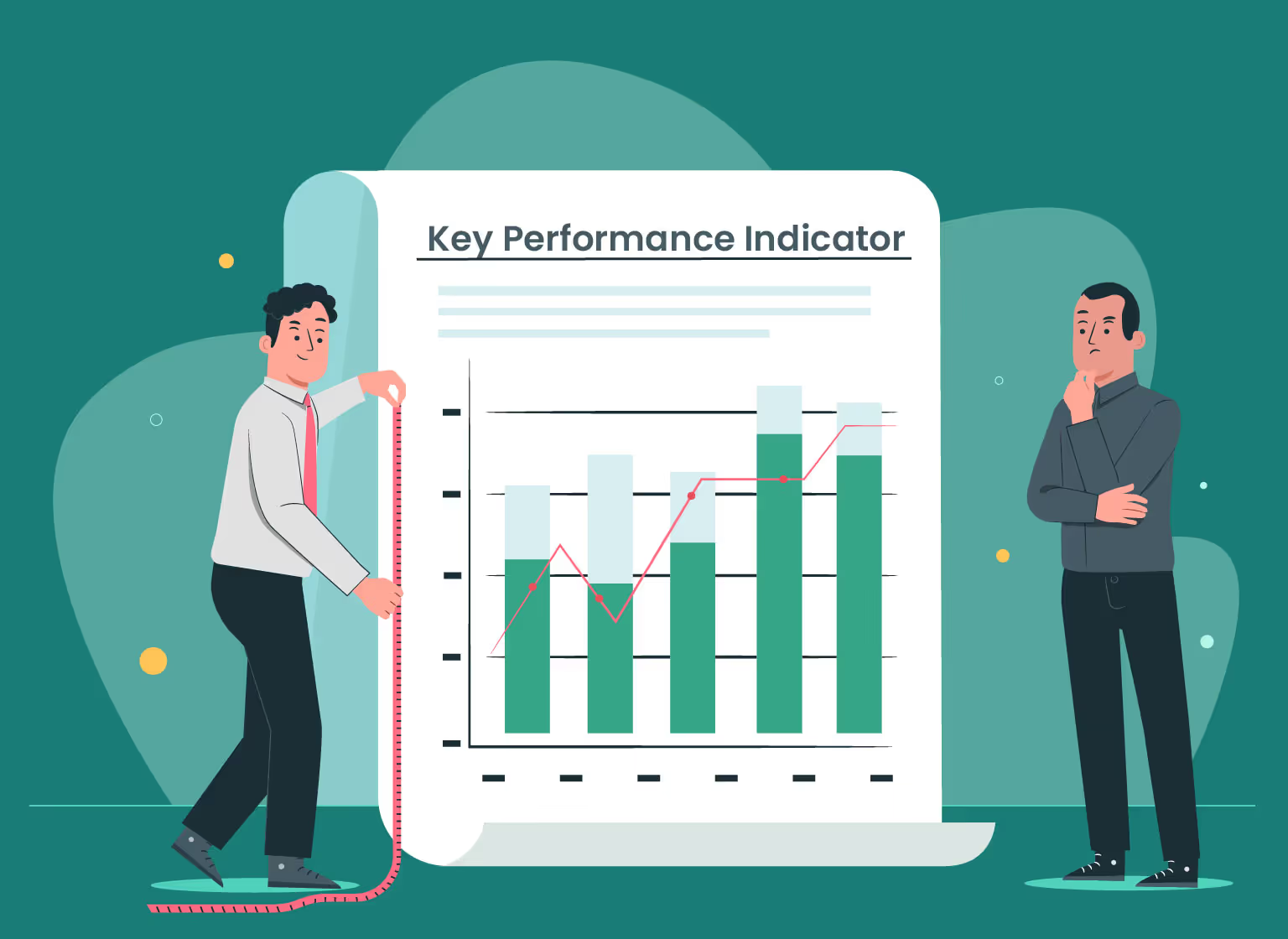
Blog
Want to measure your sales performance? Track these KPIs
August 3, 2022


Key Insights
Till date, sales managers face a conundrum: How do you measure sales performance? The easiest way out would be to look at traditional sales metrics like goal or quota achievement, but the looming question is if these are the most efficient metrics to refer to? The threat is real! Choosing the wrong KPIs could have serious consequences- sales inefficiency, demotivates reps and an overall dip in the organization’s sales performance.
While these metrics can indicate the company’s overall health, they do not make the cut if you want a more granular understanding. Therefore, it is important to identify Key Performance Indicators (KPIs) that drill down into processes not just at the company level, but at the departmental and individual levels as well.
This is easier said than done! Identifying KPIs can be hard. Chances are that you have already adopted an industry-recognized KPI, and realised that it just does not work for your business. There is a way out! Looking at KPIs as a form of communication will help. Like any other form of communication, KPIs should also have some basic characteristics- clear, concise and relevant.
Where should you start? With the basics! Jot down your organizational goals and how you plan to achieve them. Who are the people working towards these specific goals? The common consensus is that KPIs should be limited to 3. Any KPI should not be less than 15 % of the total incentive target. This way, only the most relevant metrics will be addressed.
If you are already in the process of identifying KPIs, shortlisting them is a difficult task in itself. One way to achieve this is to ensure that your KPIs pass the SMART standards. Simply address these questions when you’re figuring out which KPI makes the cut-
- Is the KPI specific?
- Can you measure the performance of the KPI?
- Is your KPI attainable?
- Is your KPI relevant to the goals of your organization?
- What is the timeframe for achieving this KPI?
In fact, many organizations are now taking the leap from SMART to SMARTER by adding evaluate and re-evaluate to the acronym. KPIs should be constantly revised and evaluated to make sure they remain realistic and relevant.

When KPIs are properly evaluated and implemented, they have the potential to-
- Solidify the company’s philosophy and mission statement
- Unify employees to work towards a common goal
- Hold people accountable for their performance
It is true that KPIs are company specific, and a KPI that is working wonders for one organization may not work for another.
Here are 3 metrics right out the magician’s hat that you can track for better insights into your sales performance:-
Lead Response Time
Leads are important, so is the time reps take to follow up on those leads. You may ask: How can time impact the success of lead conversion? Let’s allow the data to put things into perspective. Implementing effective sales coaching tips can further optimize the lead generation process and drive better results with the help of a robust leads tracker.
- Hubspot reports that those reps who revert within five minutes are 100x more likely to qualify the prospect.
- According to Inside Sales, reps have a 21x better chance if they reach out to potential customers within five minutes instead of thirty.
- Quark says that waiting for a full day reduces the chances of lead conversion by 60x.
Generating leads requires a significant investment of time and effort. It's not just your sales representatives who contribute, but other departments also work diligently to identify potential customers. These leads act as the fuel for your sales pipeline, enabling you to enhance your sales performance. Implementing effective sales coaching tips can further optimize the lead generation process and drive better results.

The Win-loss Ratio
The Win-loss Ratio is the combination of two questions. How many opportunities were converted into deals? Followed by the question- Why? Did it go to a competitor? Did the prospect go for a homegrown solution? Or did the potential client not see any value in the product?
It is never enough to stop at knowing that a deal didn't fructify. A careful dissection of the deal pipeline is not just advised but is necessary. Take this into consideration- if the deal fell out early in the pipeline, then there could be bottlenecks in the demo presentations or it could be a case of reps being late with their responses. Ask yourself if the leads that are being pursued are potential customers and the right audience for your product.
A proper diagnosis will help you identify problem areas and it will be easier to coach the reps who have a low Win-loss Rate. Analyzing your Win-loss Ratio is also a chance for you to identify your best performers and giving them a chance to up the ante by giving them better deals to negotiate! This deep dive into your Win-loss Ratio not only refines your sales strategy but also enhances overall sales performance.
So is there a way to measure your sales operations? Read more about sales operations KPI at Top 8 Sales Operations KPIs You Should Start Tracking.
Average Deal Size-
A myth that should be addressed right at the onset is that bigger deals are better deals. That just isn’t the case! The optimal Deal Size for your organization has everything to do with your goals. However, average or below average deals may be a sign of reps opting for easier wins and you have to address that.
Digging into your pipelines and your organization's historical data therefore becomes imminent.
KPIs should be designed in a way that tracking them gives you a clear picture of your company’s overall landscape. Continuously tracking KPIs allows you to identify potential issues before it is too late. More importantly, a drill down approach allows you to have breathing room for changes.
Tracking KPIs is not easy and best practices are still not laid out coherently. Therefore, an intelligent automation solution to track and monitor your KPIs is exactly what you need. To know more about how you can track your company’s KPIs in real-time to boost sales performance with sales performance management software, book a demo today!
ReKennect : Stay ahead of the curve!
Subscribe to our bi-weekly newsletter packed with latest trends and insights on incentives.
Thank you! Your submission has been received!
Oops! Something went wrong while submitting the form.
Your data is in safe hands. Check out our Privacy policy for more info
















